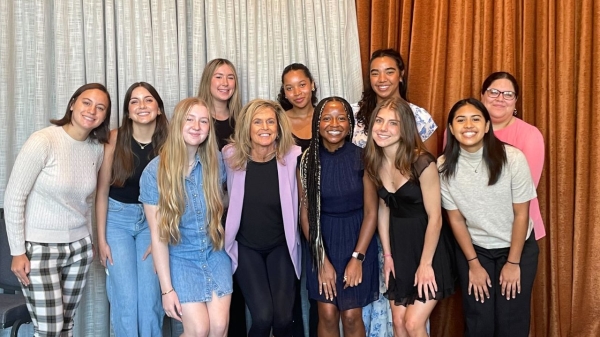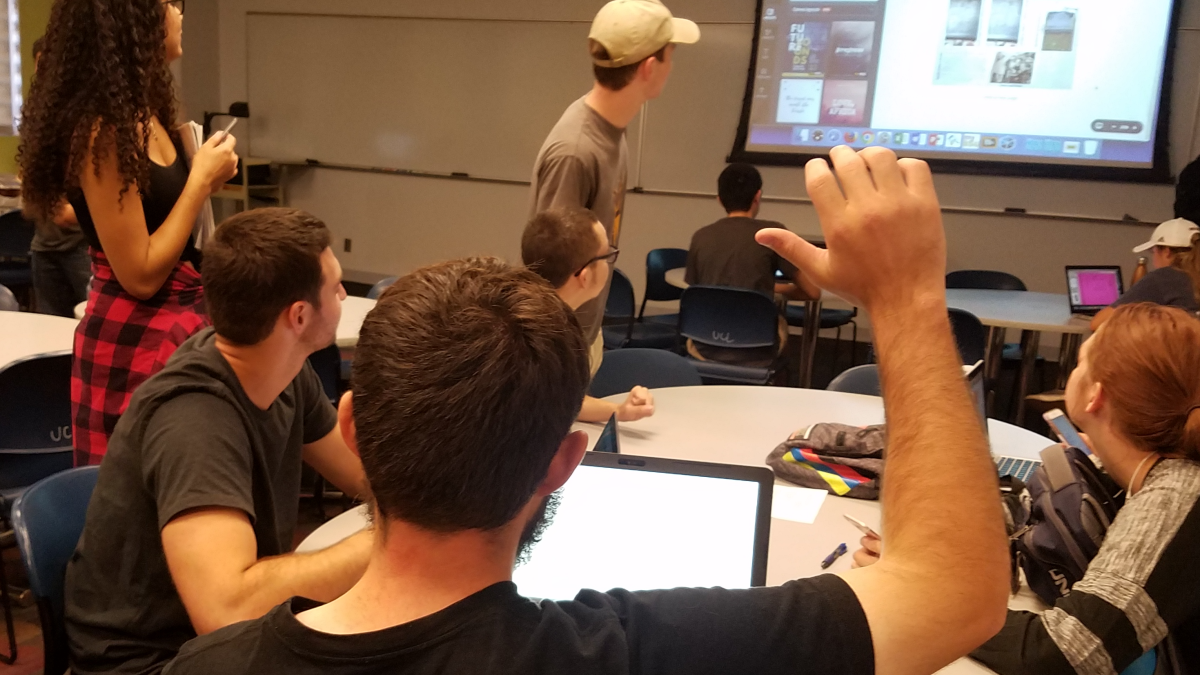Although the majority of Americans would not be here if it weren’t for immigration, there are many today who might distance themselves from their family’s immigration history.
Judith Perera, a PhD candidate studying the history of immigrant detention in the U.S. in Arizona State University's School of Historical, Philosophical and Religious Studies, realized the way immigration is taught and talked about does not reflect the process and reality of the immigrant experience. She has created a project for her students to break down their ideas of immigration by applying their own family to the narrative.
“If I can get them to place themselves and their families into the narrative, then perhaps they can see themselves in the history and it can be more relevant to them,” said Perera. “In this process I know other people don’t think about how they are descendants from immigrants, so they don’t really think about that process. So how does an immigrant instructor get someone on the same page? How do you get students engaged?”
Her answer came after she visited the Southwest Oral History Conference in April. She was impressed by the use of oral history in classrooms as well as in the community and decided to apply it to her own teachings.
“I think traditional history courses are lecture-based, exam-based, paper-based, and my courses don’t really do that,” said Perera. “You are teaching to dramatically different students. They have a lot of information accessible at their fingertips with their phones so you don’t necessarily need to be as lecture-based. Rather, let's think about things, let's talk about things.”
The topic of immigration is important to Perera as she is an immigrant herself. She immigrated to the U.S. from Sri Lanka when she was 11 years old. She said her own experience of coming to America is one that many of her students have trouble relating to, so she has made it her priority to ask them to look to history for their own tale.
“To me, being an immigrant myself, it’s something I kind of think about on a daily basis,” said Perera. “So while at the same time I’m researching, it’s not like I can go home and say, ‘OK, research over. I’m going to do my own life,’ you know? You wake up and you eat, sleep, breathe it.”
Perera decided to have her students take on a project called “Our Stories,” in which students found their immigration story within their families. They traced back to when their families came to America and have put together posters for an exhibit in Hayden Library.
“If I can get every student to acknowledge their own immigrant story, can others in the public do the same?” asked Perera. “What impact might that have in changing the way we approach immigration or think about immigration? Just showing more compassion, kindness, empathy towards people.”
The posters will be displayed in the library from Nov. 16 until Dec. 8. There is also a website dedicated to the project, and there will be a documentary premiering on Dec. 1 at the Marston Exploration Theater on the ASU Tempe campus.
“The students have been so incredible,” said Perera. “The students are going above and beyond what they have to do, and they have taken so much time to build this. It’s remarkable.”
More Law, journalism and politics

Peace advocate Bernice A. King to speak at ASU in October
Bernice A. King is committed to creating a more peaceful, just and humane world through nonviolent social change.“We cannot…

CNN’s Wolf Blitzer to receive 41st Walter Cronkite Award for Excellence in Journalism
Wolf Blitzer, the longtime CNN journalist and anchor of “The Situation Room With Wolf Blitzer,” will accept the 41st Walter…

Cronkite School launches Women Leaders in Sports Media live-learn program
Women in a new sports media program at Arizona State University got a solid game plan from a sports veteran at an Aug. 20 welcome…
